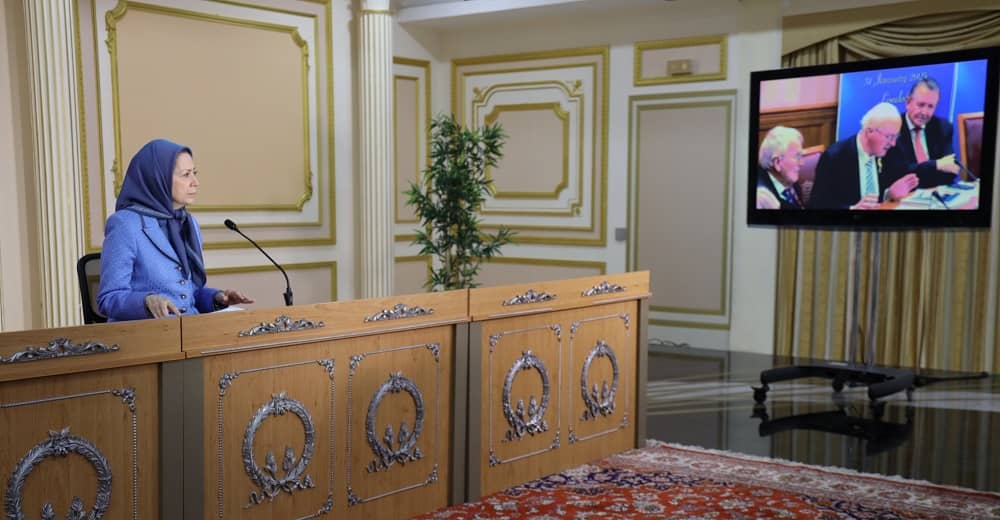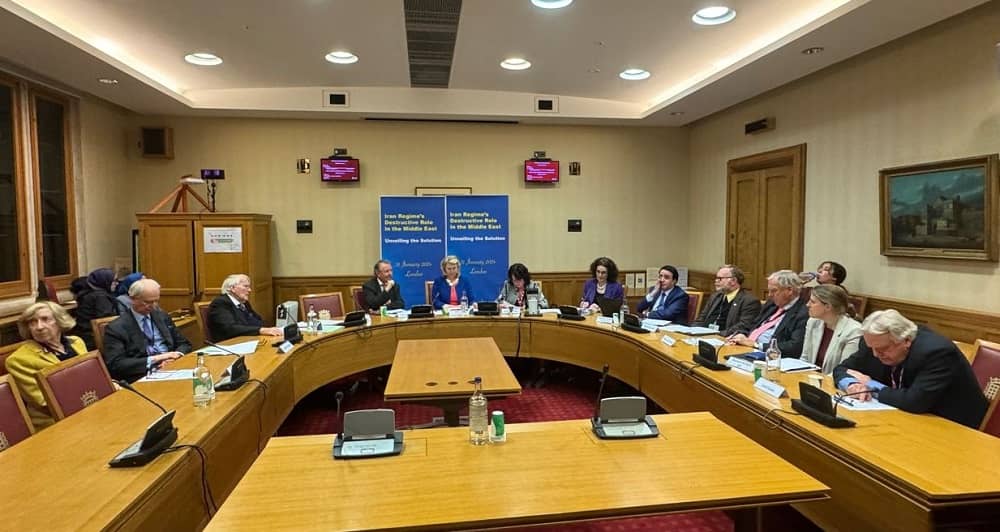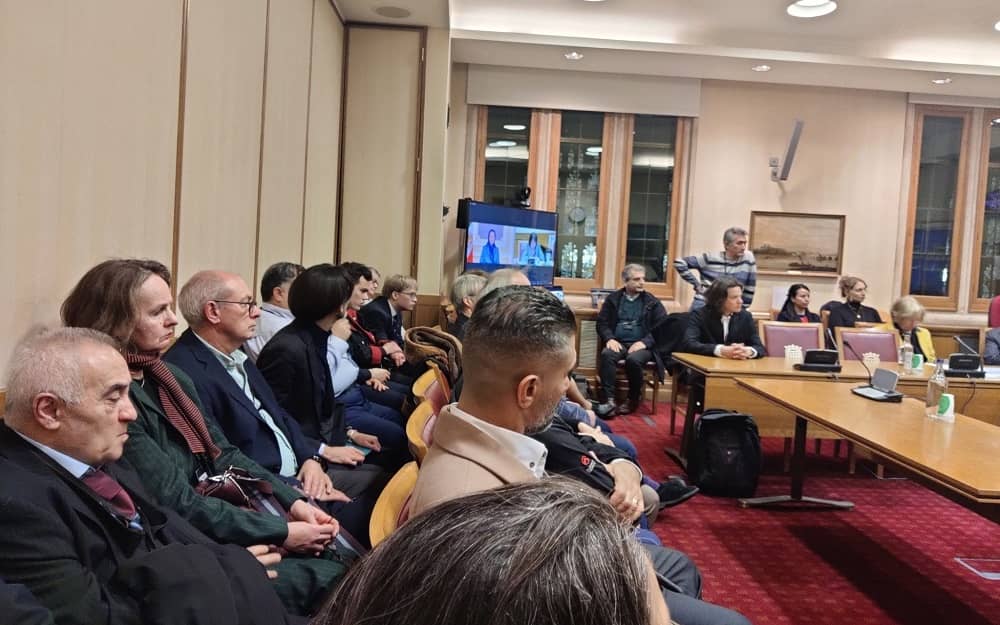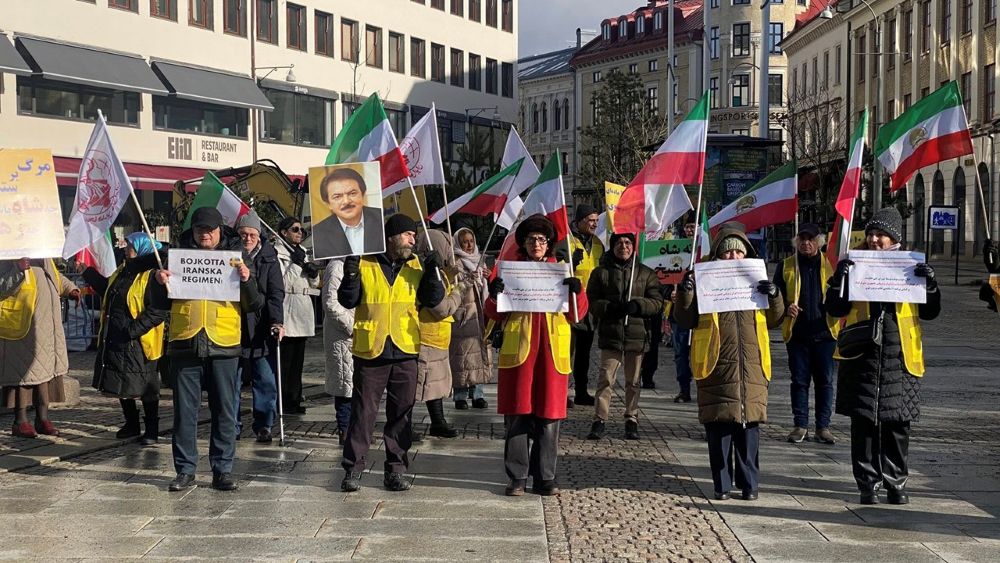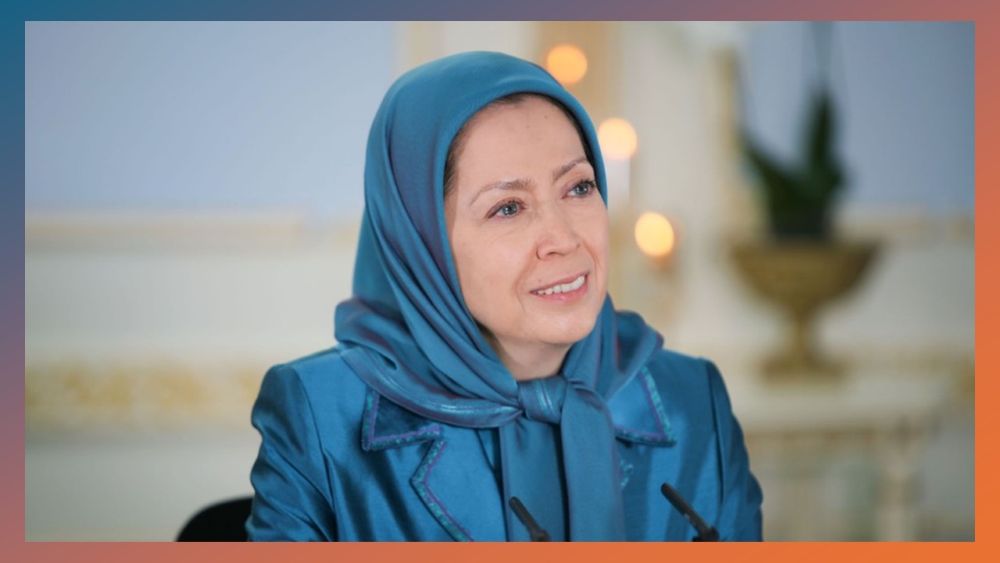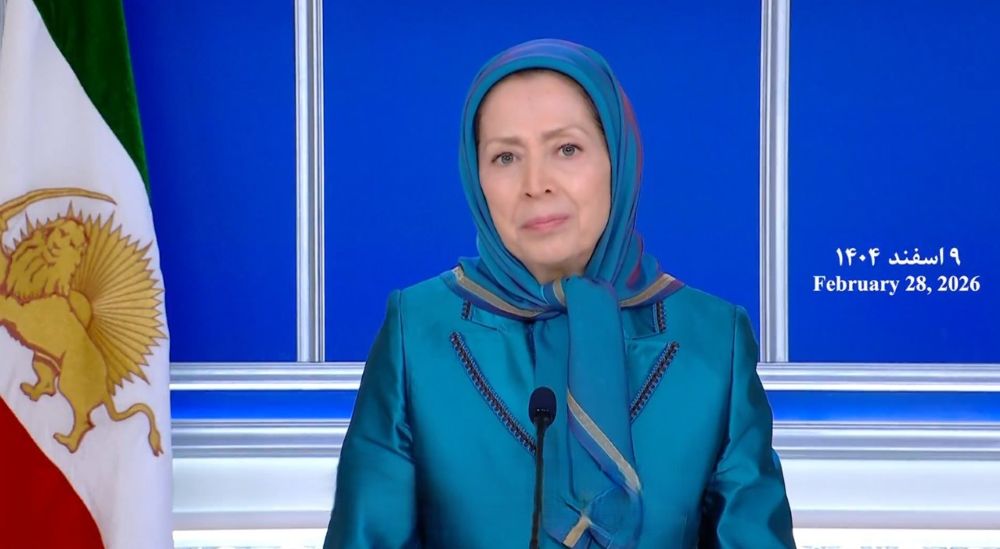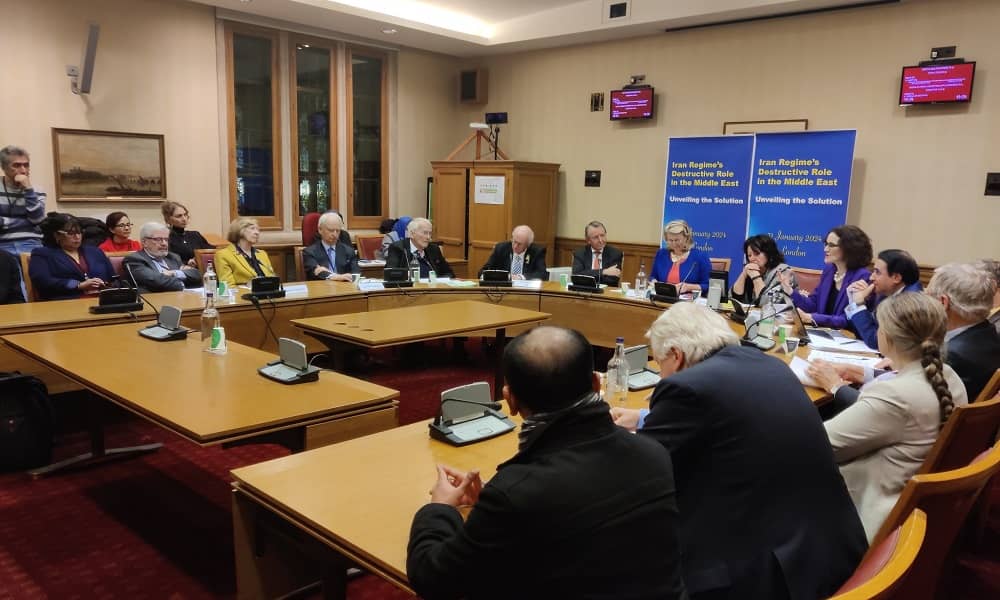
On Wednesday, January 31, a conference took place in the UK Parliament, attended by representatives from both the House of Commons and the House of Lords, as well as members from major political parties in the UK. The focus of the conference was the detrimental role played by the Iranian regime in the region. Participants deliberated on potential strategies to counter its influence.
Mrs. Maryam Rajavi, the President-elect of the National Council of Resistance of Iran (NCRI), delivered remarks remotely during the conference, providing insights and perspectives to the gathered representatives.
Throughout the event, members from both houses of the UK Parliament stressed the importance of holding the Tehran regime accountable. They highlighted its involvement in warmongering activities and exacerbation of regional crises. The conference participants expressed support for the democratic alternative proposed by the NCRI and endorsed Mrs. Rajavi’s Ten-Point Plan.
Speakers at the conference urged the UK government to designate the Islamic Revolutionary Guard Corps (IRGC) as a terrorist organization. They aligned with calls to address the regime’s destabilizing actions in the region.
Mrs. Maryam Rajavi delivered a comprehensive address that delved into the extensive impact of the Iranian regime on the Middle East. She passionately emphasized the regime’s direct involvement in regional conflicts and acts of terrorism. Urging Western governments, with a particular focus on the UK, to adopt a robust stance, Mrs. Rajavi advocated for firm support for the Iranian people’s fight for democracy. Expressing deep concern over the policy of appeasement, she made a compelling case for designating the Islamic Revolutionary Guard Corps (IRGC) as a terrorist organization.
In her speech, Mrs. Rajavi passionately called for global recognition of the Iranian people’s resistance, emphasizing the critical necessity of dismantling the regime to restore peace and stability in the region. She drew attention to specific instances, such as missile attacks and support for proxy groups, highlighting the regime’s disruptive role. Mrs. Rajavi underscored the urgency of decisive international measures to prevent further escalation of conflicts orchestrated by the regime.
Throughout the conference, a chorus of voices echoed Mrs. Rajavi’s concerns. MP Anna Firth, Lord Alton, Baroness Eaton, and MP Jim Shannon were among the speakers who amplified the urgency of acknowledging the Iranian people’s resistance movement. They decried the regime’s human rights abuses, including the fabrication of cases against dissidents, and its sponsorship of terrorism.
A resounding call for the prescription of the IRGC as a terrorist organization reverberated throughout the conference. Speakers criticized the perceived delay in taking this crucial step and advocated for a united front against the Iranian regime. Rejecting past policies of containment and engagement, speakers commended the National Council of Resistance of Iran (NCRI), led by Madam Rajavi, for providing a democratic alternative and a roadmap toward a free Iran.
MPs such as Teresa Villiers and Martyn Day emphasized the imperative of supporting the Iranian people’s legitimate struggle for freedom and democracy. They pressed for global recognition of the Iranian people’s aspirations for a democratic, secular republic. Rachael Maskell and Lord Hacking brought the focus to the pressing issue of human rights in Iran, calling for international coordination to address the regime’s egregious atrocities.
Lord Whitty expressed deep respect for the NCRI’s enduring struggle and called for substantive changes in UK government policies. He stressed the urgency of proscribing the IRGC and implementing broader sanctions against the regime’s leadership. The prevailing sentiment in the conference was a collective call for decisive international action to counter the Iranian regime’s destabilizing activities and flagrant human rights violations in the Middle East.

